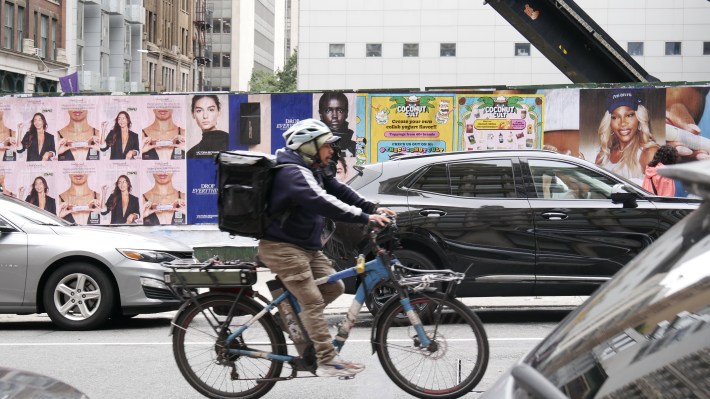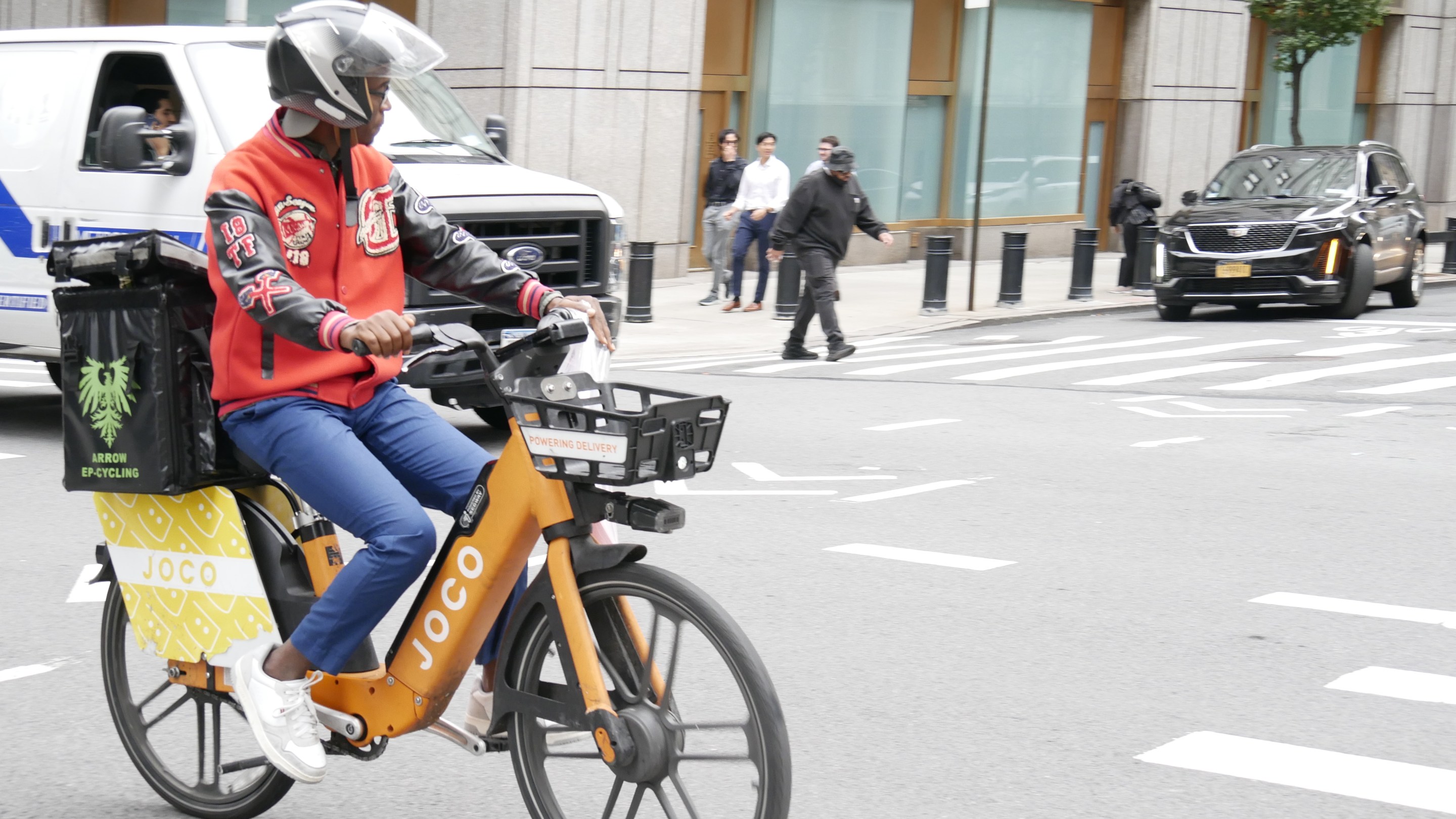Fresh off their failed bid to kill the city's delivery worker minimum wage, app companies continued their fight against efforts to regulate their industry at a City Council hearing on Friday, voicing their opposition to a bill to prohibit punitive worker deactivations and lockouts while denying such a thing even exists.
Testifying before the Council's Committee on Consumer and Worker Protection, Uber official Freddi Goldstein insisted the routes the company requires its workers take — or else face deactivation from the app — are "the best," but insisted, contrary to widespread claims from Uber workers and city officials, that route selection has nothing to do with speed.
"In theory our map should guide a worker through a route that is the best route they should take," Goldstein, a one-time top spokesperson for former Mayor Bill de Blasio, told Council members. "We don't take into account the speed of the delivery. What we look at is if the route that the worker took matches the route that we recommended."
Goldstein's claim contradicted hours of testimony Friday from city officials and delivery workers, who told Council members the app deactivations and lockouts create pressure to ride recklessly and rush for fear of losing access to work.
The bill in question, Intro 1332, would restrict apps from banning or suspending workers without cause. Over six hours on Friday, delivery workers from multiple immigrant communities shared how unexplained deactivations make their lives harder and work less safe.
“People in the city often complain about delivery workers going fast. We understand the concern, but too often we have no choice," said one delivery worker for Uber and DoorDash told Council members.
Under Intro. 1332, introduced by Council Member Justin Brannan (D-Bay Ridge), app companies like UberEats, DoorDash, Instacart, GrubHub and Relay would have to provide a reason for locking out or deactivating a worker, and could only do so after first taking some other form of disciplinary action.
Without such "just case" protections, workers must make tough decisions between their livelihoods and safety, workers and their advocates said.
"This bill is about street safety. It is deliveristas that are dealing with the pressure on our streets," said Ligia Guallpa, executive director of the Worker's Justice Project, which includes Los Deliveristas Unidos.
But even as workers lined up to tell their stories of deactivation, the app companies denied that there are issues with the deactivation appeals process.
Goldstein, of Uber, insisted the company has a "fair" and "thorough" process for dealing with appeals, and said that the deactivations have been an attempt to reduce "fraud." But she conceded that the company considers it "fraud" whenever a delivery worker strays from the suggested route.
"So far in 2025 only 2 percent of delivery workers have faced deactivations in New York City monthly. These were due to fraudulent activity and theft," Goldstein said.
For workers, the "suggested" route and trip times are an implicit instruction to go fast — or else. Representatives from the city Department of Consumer and Worker Protection shared a list of anonymized complaints to show the scope of the problem.
“They falsely deactivated me for ‘fraudulently prolonging trip time,’ accusing me of intentionally delaying, even though most of my trips are within the time they estimated, even earlier, with the exception of traffic,” one of the worker complaints read. "There is nothing I can do when there’s traffic due to Labor Day Parade or an accident ahead blocking two lanes. It’s slanderous to call this a fraud. It’s as though they encourage drivers to break traffic laws to meet their time estimates."

Goldstein was not able to provide the committee with the number of "fraud" deactivations the company has enacted, nor with examples of how the appeals process of these cases plays out.
In separate testimony, DoorDash claimed the bill would "make it harder to remove unsafe or dangerous actors from the platform."
"This bill also risks undermining safety by discouraging consumers from speaking up in the rare event of a dangerous interaction," the companies written statement said.
Friday's hearing came just days after the City Council overrode Mayor Adams's veto of the Council's bill expanding the delivery worker minimum pay standard to include all contracted app based workers — even after grocery delivery company Instacart’s expensive lobbying campaign against the bills.
DCWP testified in favor of Brannan's bill on behalf of the Adams administration.
“Lockouts” – or when app companies restrict workers from signing on and making deliveries at certain times – and “deactivations,” when an app company kicks off a worker entirely, are the two of the biggest sources of complaints delivery workers have had since the minimum pay standard went into effect for restaurant delivery apps in 2023.
App companies, on the other hand, blame frequent lockouts and deactivations on the minimum wage, creating discontent among workers.
But the city doesn't require companies enact strict scheduling protocols or lockouts. Rather, the companies choose to do so make up for small losses to their enormous profits due to the minimum wage, one expert said.
“There is nothing in the DCWP delivery regulations that forces the companies to lock out workers," New School professor and economist James Parrott said in testimony submitted to the Council on Friday. "The companies maliciously choose to do that in an attempt to undermine effective regulation. The app business model is the culprit and their profit lust blinds the companies to the need to treat workers fairly."






